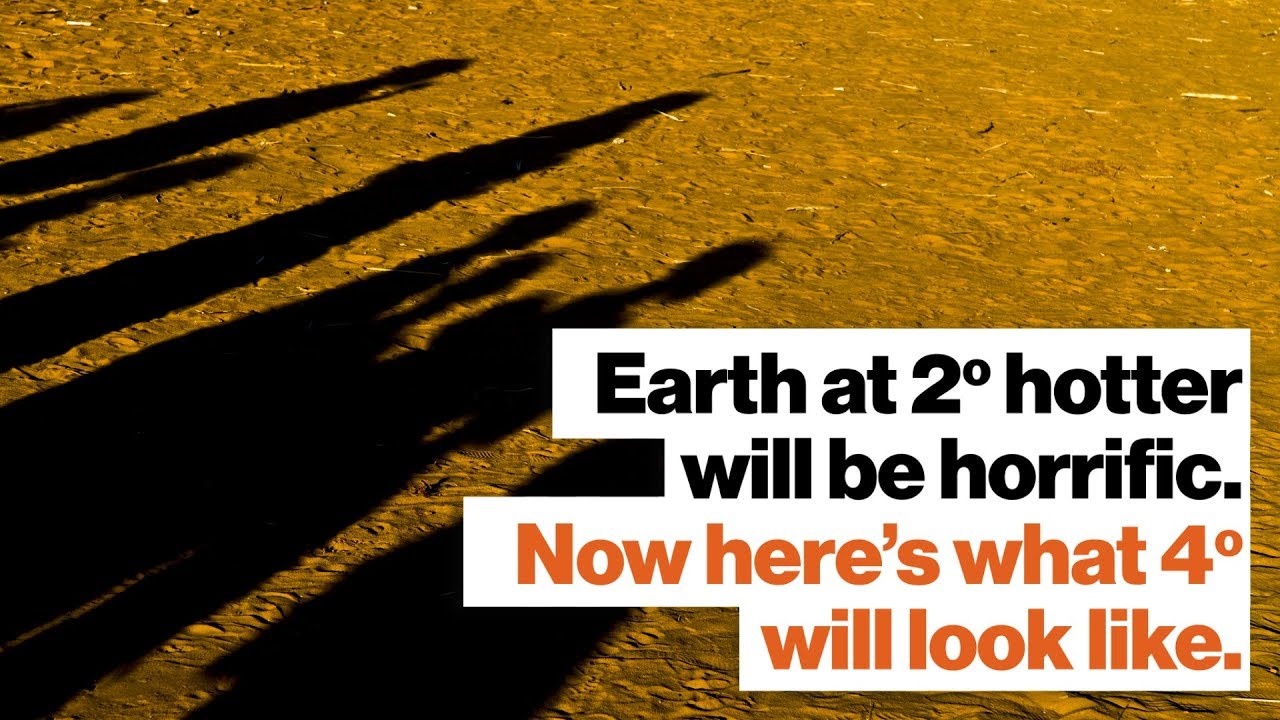Earth At 2° Hotter Will Be Horrific. Now Here’S What 4° Will Look Like. | David Wallace-Wells
Unleash Your Creative Genius with MuseMind: Your AI-Powered Content Creation Copilot. Try now! 🚀
When we look out of our windows each day, the world appears stable. Despite the occasional news of extreme weather events, such as wildfires and droughts, we still hold onto the belief that our own lives will remain unaffected by climate change. However, the truth is that in the coming decades, our lives will be dramatically disturbed by the force of climate change. There is no life on Earth that will escape its deforming, damaging, and transforming effects.
Scientists suggest that the best-case scenario is a 1.5 degrees Celsius increase in global temperatures. However, achieving even this modest goal is practically impossible without the implementation of negative emissions technology. This technology, which has only been successfully tested at the lab scale, needs to be deployed globally to have a significant impact. Yet, we still don't know enough about it to fully trust its effectiveness.
Realistically, I believe our best-case scenario will be a warming of two degrees Celsius. Unfortunately, most scientists describe this level of warming as a threshold for catastrophe. For many island nations, it is nothing short of genocide. Rising sea levels alone pose a grave threat to their existence. However, the impacts of climate change won't be confined to these nations alone. Major cities in South Asia and the Middle East, such as Calcutta, with their populations in the millions, could become lethally hot in the summer by 2050.
The consequences extend beyond extreme temperatures; the United Nations predicts that by 2050, we could have 200 million climate refugees, a number that could potentially rise to one billion. To put this into perspective, the Syrian refugee crisis, which caused significant political destabilization and led to Brexit, resulted from just one million refugees. We are facing a humanitarian crisis on a scale never witnessed before, and it comes at a time when countries around the world are retreating from their commitments to one another, embracing xenophobia and nationalism.
As the number of people in desperate need grows in the coming decades, we must confront the moral obligation to welcome them. Failure to do so would be committing real moral crimes, which may become normalized as we navigate this transformed world. We tend to shy away from considering worst-case scenarios due to the fear they evoke. However, it is crucial that we face these possibilities head-on and take the science seriously.
At our current trajectory, the UN estimates a warming of 4.3 degrees Celsius by the end of the century if we don't change course. This would result in $600 trillion in global climate damages, double the current global wealth. The world would experience simultaneous climate-driven natural disasters and more than double the amount of warfare we witness today.
There are also feedback loops within the climate system that could accelerate warming beyond what human actions alone can cause. For example, as the arctic ice melts, the planet's ability to reflect solar energy diminishes, leading to further warming. Additionally, the release of carbon from melting permafrost could double the concentration of carbon dioxide in the atmosphere, significantly contributing to temperature increases. The disruption of cloud formation due to increased carbon levels could add an additional 8 degrees Celsius of warming.
These possibilities paint a grim picture of our future. At just 1.1 degrees Celsius of warming, we are already entering a new world. Two degrees is considered genocide by island nations, while four degrees would be doubly catastrophic. Beyond four degrees, we enter a realm where the climate system escapes human control and makes much of the planet uninhabitable.
We must face the reality of climate change and its potential consequences. Even the most optimistic outcomes are horrifying. It is crucial that we do not turn away from these possibilities, but instead, focus on them intently. We need to challenge our psychological reflexes that lead us to complacency and take aggressive action to combat climate change. The future of our planet and the lives of billions are at stake. It is time to act.

Related Recaps
- bbR TecHChecK:: Office of Broadband and Digital Equity
- Leading Through Disruption: Sir Jim Ratcliffe speaks to The Financial Times.
- Quadrants of the Coordinate Plane | What are the Four Quadrants? | Math with Mr. J
- LIQUID vs OG | MC GIVING FULL IMPACTS TO OG SO PRO | ESL ONE BERLIN MAJOR 2023 Dota 2 Highlights
- #IPL2023; #SRHvLSG | Can #SRH take advantage of struggling #LSG?